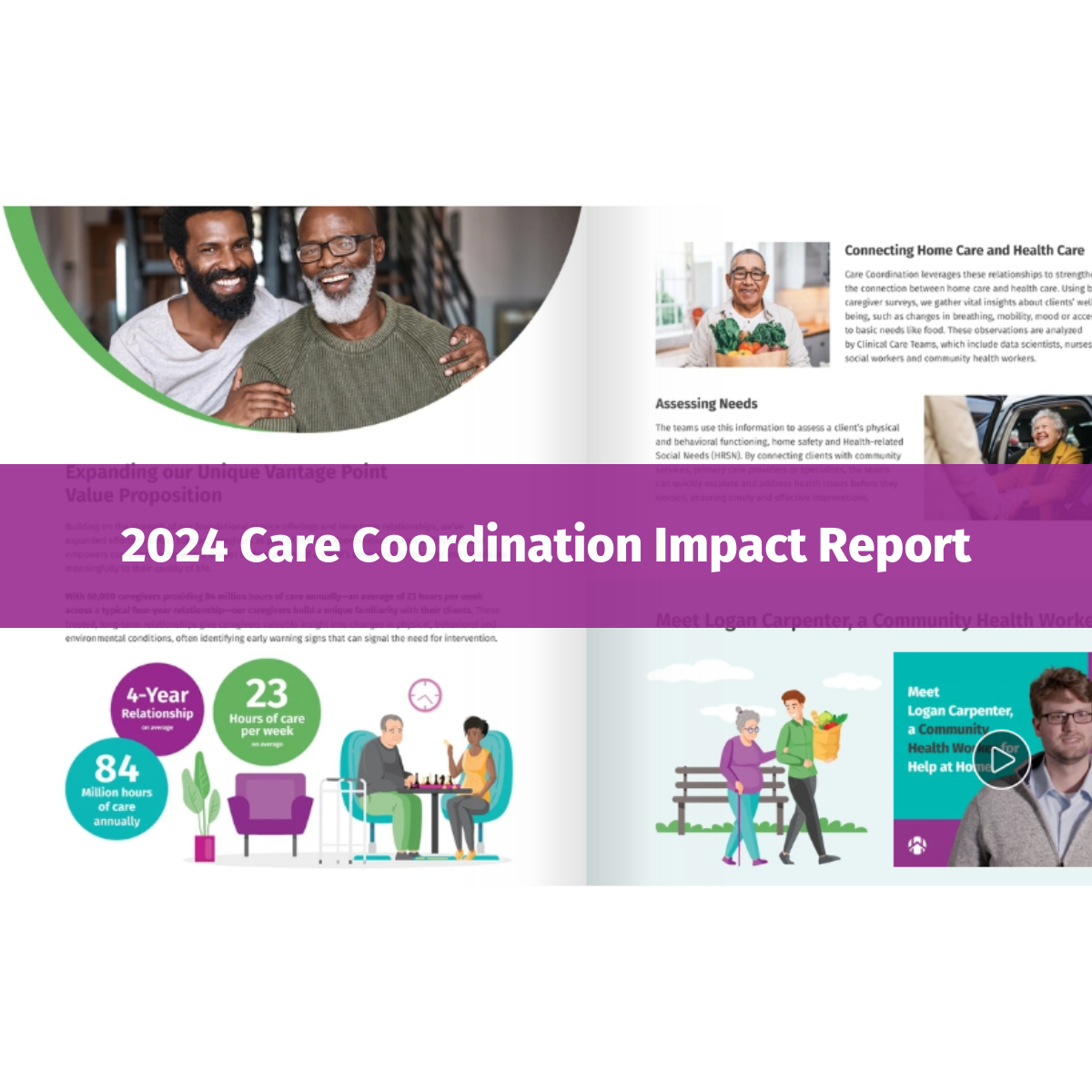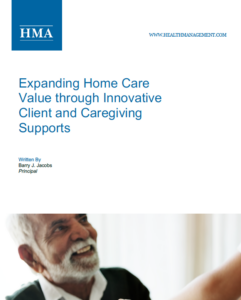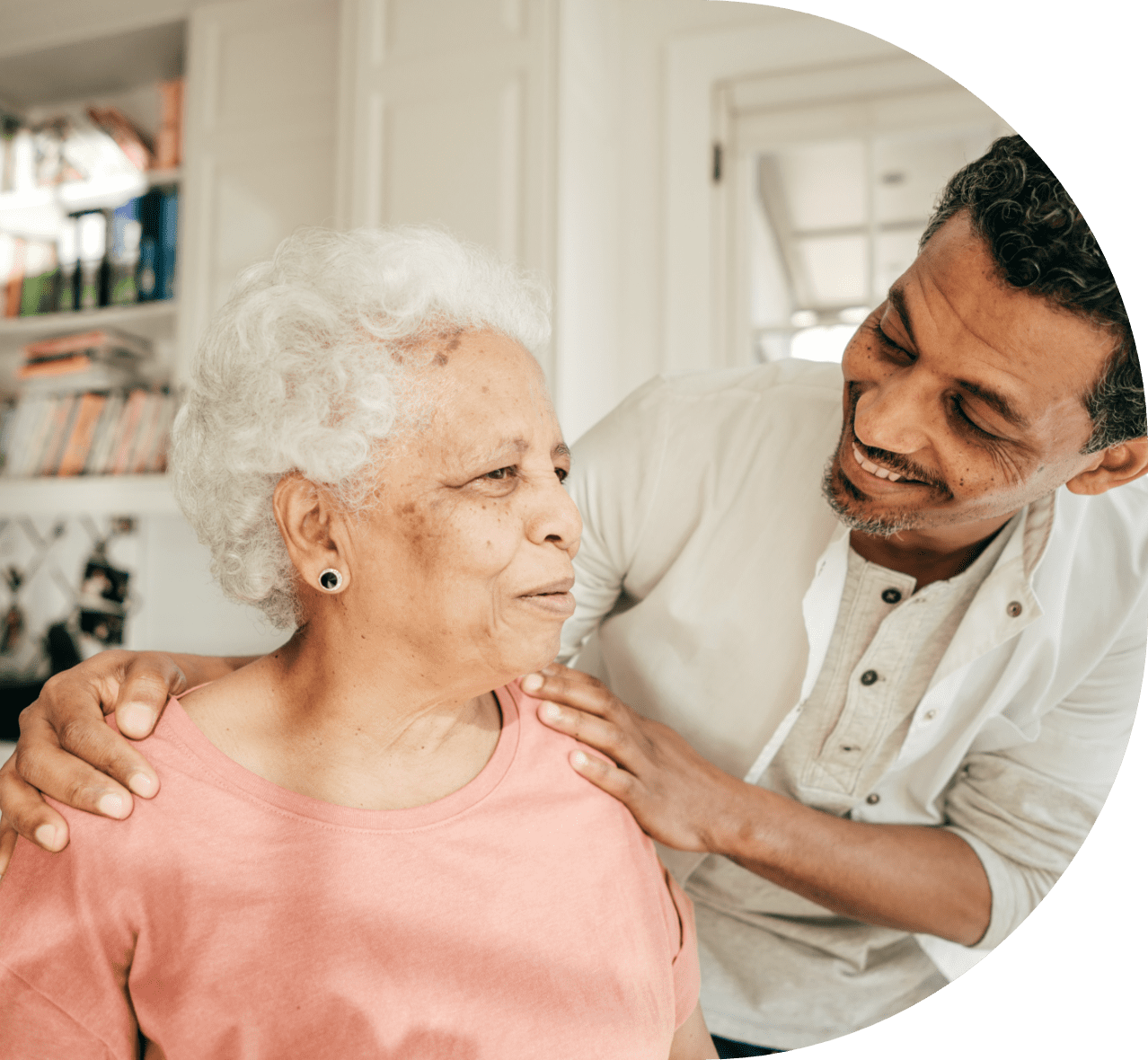
Connecting home care
to health care
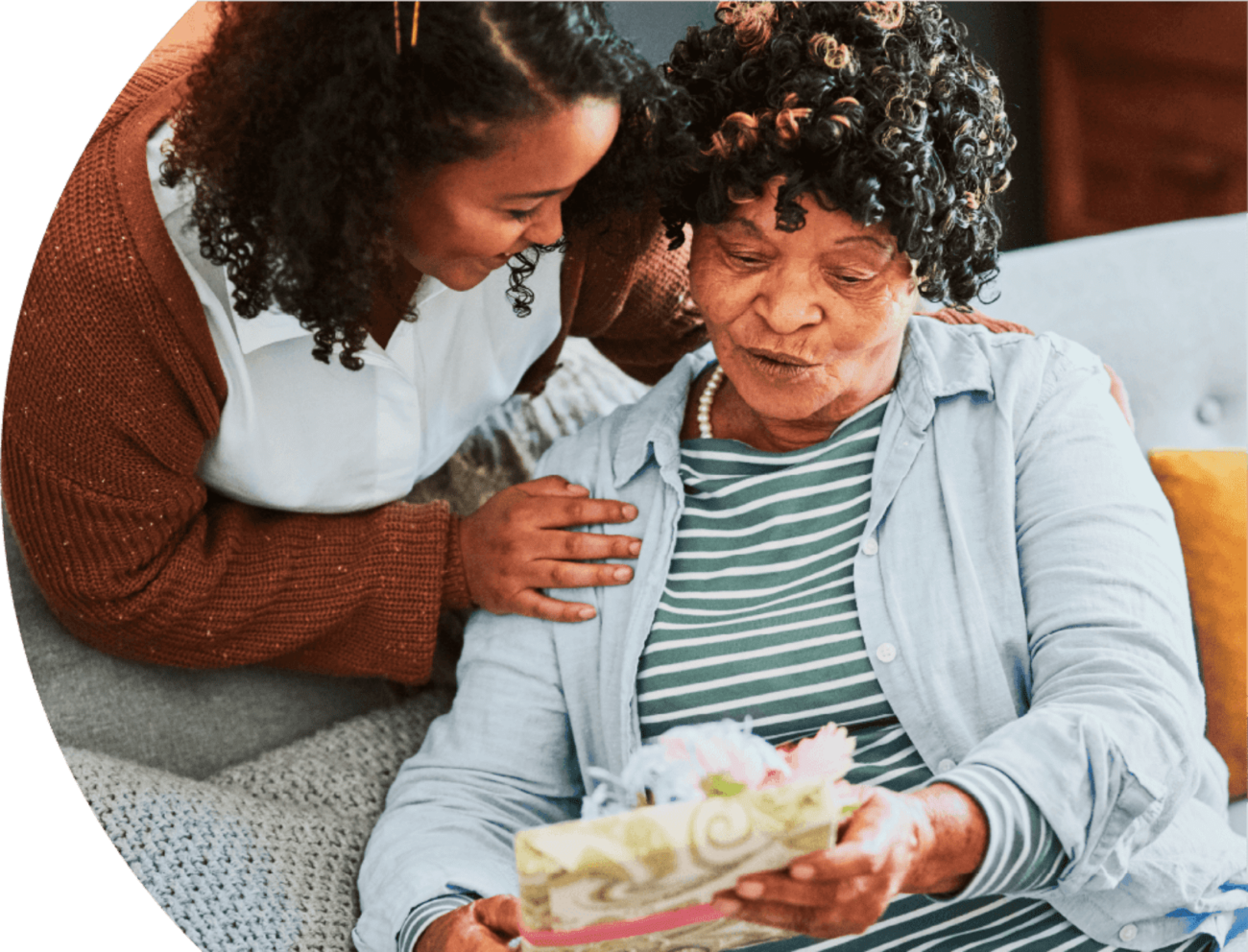
Care Coordination from Help at Home

As the largest provider of in-home personal care services for seniors and people living with disabilities, we are changing the way in-home personal care is delivered with innovative care coordination strategies enabling caregiver observations that identify client needs to provide early health care interventions. Our goal is to support our clients, helping them to live with independence and dignity in their home, where they want to be.
Caregiver time spent in the home is valuable. By simple, digital capture of physical, behavioral and environmental observations, we’re able to assess, act and prevent avoidable health events that cause hospitalization or institutionalization. Our program drives higher quality outcomes, lower health care costs and improved client and caregiver satisfaction.
How Care Coordination Works
Help at Home’s Care Coordination approach starts with connections. We connect the caregiver observations to a clinical team and a network of providers and community resources to create a more holistic model of care.
Caregivers
Our 50,000+ caregivers spend an average of 20 hours a week caring for clients in the home with an average 4-year relationship. They observe changes in conditions — physical, behavioral and environmental that can indicate the need for interventions. Care Coordination helps caregivers feel supported in their valuable work of caring for clients.
Health Care Providers
Caregiver insights, data and analytics enabled by our proprietary clinical platform empowers our clinical team to coordinate early interventions with the right health care providers. Our multidisciplinary clinical team of nurses, social workers and community health workers engage primary care providers and community resources that best match the client needs.
Health Care System
We’re connecting home care to the entire health care system — bringing a fresh, innovative approach to in-home personal care services focused on preventing avoidable events and services, closing gaps in care and reducing health disparities for underserved populations with complex chronic conditions.
A Unique and Present Perspective: Caregiver-Client Relationships are Key to Observing and Understanding Condition Changes

70 Million Hours Caring for Clients
With a caregiving workforce of 50,000 and growing, we spend 70M hours in the home annually, enabling us to deliver on a holistic care coordination model as we support our clients aging in their homes.
Insights and Actions from Caregiver Observations
Our proprietary clinical platform analyzes over 75 insights per client, per month, as caregivers submit regular observations on their client’s change in condition. These ongoing data points are comprised of insights across a client’s physical appearance and condition, behavioral changes, changes to their home environment and social needs or unexpected events and trigger clinical team actions. Insights are stratified based on our proprietary predictive analytics allowing our clinical teams to respond quickly to clients with immediate needs or monitor for concerning trends over time.

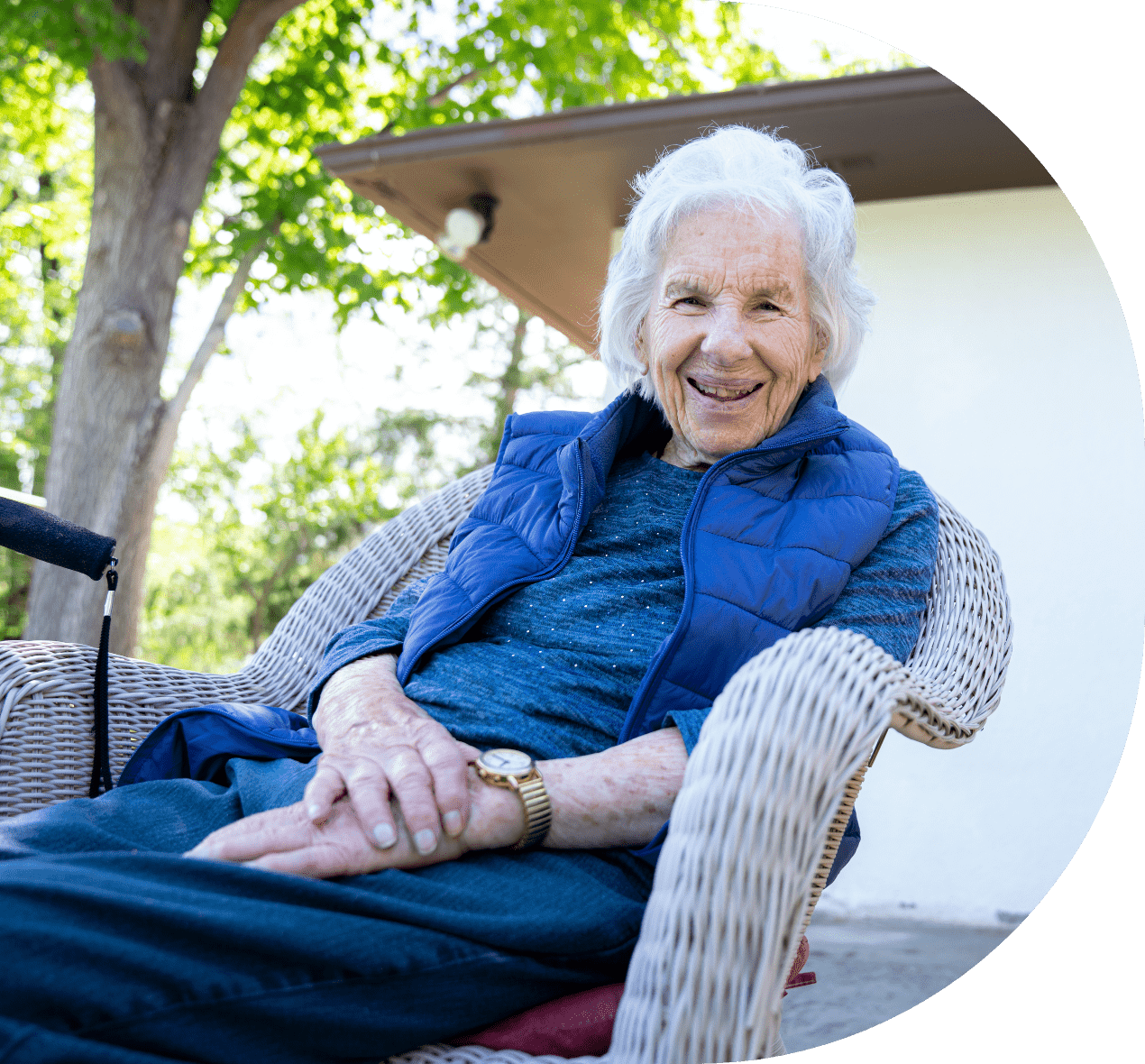
A Unique Vantage Point
Caregivers have a unique vantage point in the homes of their clients. Their frequent observations note important changes such as, changes in breathing or walking, mood changes and food nutrition indicators. It’s through observations collected and analyzed that we can activate broader services to meet health care needs.
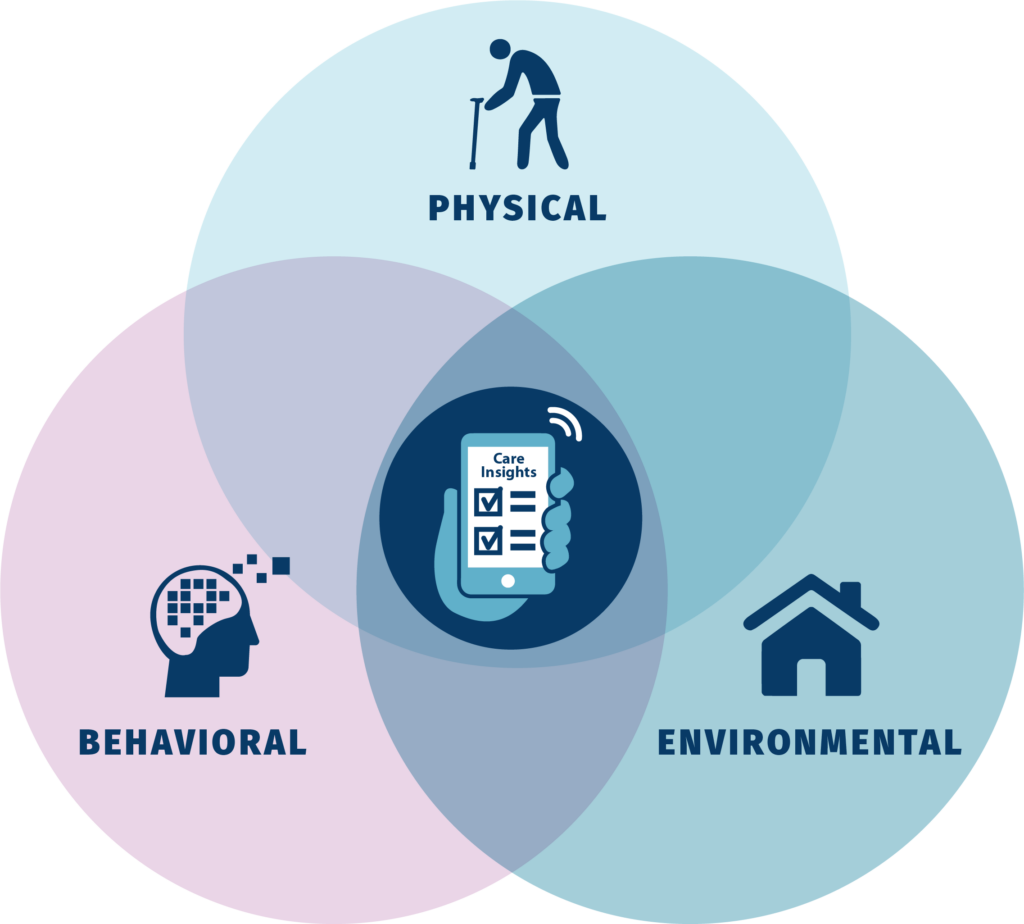
How Care Coordination Works: Change in Condition, Intervention and Result Case Studies

Observation: Physical Change in Condition
Observation
Caregiver who routinely walks with their client, noticed her client was having more difficulty breathing than usual. Care Coordination RN was engaged and connected with the client to assess decreased ability to walk distances, client was exhibiting shortness of breath.
Outcome
RN connected client with their PCP and referred to pulmonology who adjusted clients COPD medications, and the client has remained stable in the following weeks, avoiding ER visit and hospital admission.

Observation: Behavioral Health Change in Condition
Observation
Through ongoing caregiver-client relationship caring for her client, caregiver noticed client seemed to be depressed, which was not normal behavior for the client.
Outcome
Care Coordination Community Health Worker (CHW) noted client has a diagnosis of diabetes and high blood pressure suggested PCP visit to review medications for possible impact on client’s mental health. Appropriate treatment avoided possible hospitalization and decline of mental health.

Observation: Social Determinants of Health Change in Condition
Observation
Caregiver noticed her client did not have enough food for meal preparation. Care Coordination Community Health Worker (CHW) intervened to understand food nutrition and security situation.
Outcome
CHW connected client with a referral to local area agency on aging to arrange for home delivery meal program for long-term solution to food insecurity so client can receive home delivered meals daily.
Learn more in our Care Coordination Podcast Series here:
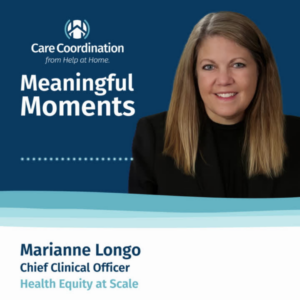
Read our latest whitepaper in partnership with HMA here:
Want more information about Care Coordination by Help at Home? Email us at [email protected].
